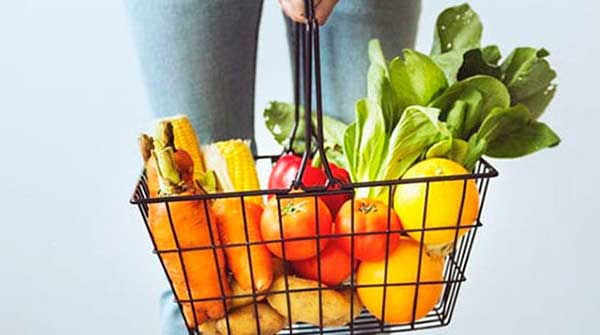 Apparently Copenhagen is home to the world’s first supermarket to intentionally sell expired food products. It’s about time.
Apparently Copenhagen is home to the world’s first supermarket to intentionally sell expired food products. It’s about time.
WeFood stems from a community-led effort. The charitable organization officially opened in February after a successful crowd-funding effort and is operated by volunteers.
The store’s aim is to reduce waste, repurpose unwanted food and raise funds for regions of the world where food supply is an issue.
What is most powerful about ’s model is its intent to serve the broader public. The Danish supermarket hopes to attract consumers who are environmentally conscious and individuals with less means. But, ultimately, WeFood will do business with anyone.
Pressure to reduce waste is coming from all fronts. The European Union has pledged to reduce food waste by 50 percent by 2025 – and research has shown that food waste is brought about by several avoidable causes. Mainly, we know that food waste is essentially the negative outcome of highly inefficient food distribution systems and detrimental consumer habits. WeFood attempts to address these two main failings at once by offering recoverable food products to progressive consumers.
The initiative is supported by the Danish minister for food and environment. The government actually lauded the organization’s effort to make a difference. Officials were present when the store opened, sending a clear signal that such a project is morally acceptable and economically necessary.
But the project still carries risks, which are linked to two main issues: food safety and procurement.
Selling expired food products can increase the risk of food-borne illnesses and outbreaks. WeFood makes it explicit that buying anything in its store warrants better risk management practices at home by the consumer. Encouraging the consumer to reduce risks when preparing meals is key to a sound communication plan.
Getting consistent supplies is also a challenge for a store like WeFood. To make sure shelves remain filled, unwanted but perfectly edible food must come from a broad network of businesses: local supermarkets, butchers, produce importers and even food processors are engaged. These groups must be continuously involved so WeFood can rely on a steady flow of store traffic. This is critical to make WeFood’s model sustainable.
Denmark has reduced its food waste by 25 percent in the last five years, which signifies how the community has evolved in recent years, at least in Denmark.
The United States wastes 50 percent more food than in 1990. In Canada, $31 billion worth of food is wasted every year, indicating there is definitely room for improvement. Some Canadian enterprises are attempting to stop the waste. Canada’s Second Harvest repurposes food, but it only caters to residents who are chronically short of food.
Although it is evolving, Canada is nowhere near where Europe is when it comes to minimizing waste of all kinds. To similarly reduce food waste in Canada, our approach to food-related risks will need to change.
That kind of effort in Canada would pay off, because what WeFood is doing is very transformative.
Reducing food waste is not simple, and can be used by governments looking to garner more political support. This grassroots-based approach has more merit than France’s decision to force supermarkets to donate unsold food to charities or to redirect products for animal feed. Most large supermarkets in France already do what the law now requires them to do.
The Copenhagen initiative is not about getting more votes. WeFood not only captures the essence of a group’s will to reduce waste and assist those in need, it democratizes important issues like food insecurity and waste. Reducing food waste can easily unite the poor and the rich, the left and the right.
To make food systems more efficient, from farm to fork, and to make food waste everyone’s business is the right call. Adding value to products that would have been otherwise rejected by food retailing conformists only makes sense.
Dr. Sylvain Charlebois is senior director of the agri-food analytics lab and a professor in food distribution and policy at Dalhousie University.
Sylvain is a Troy Media contributor. Why aren’t you?
The views, opinions and positions expressed by columnists and contributors are the author’s alone. They do not inherently or expressly reflect the views, opinions and/or positions of our publication.


